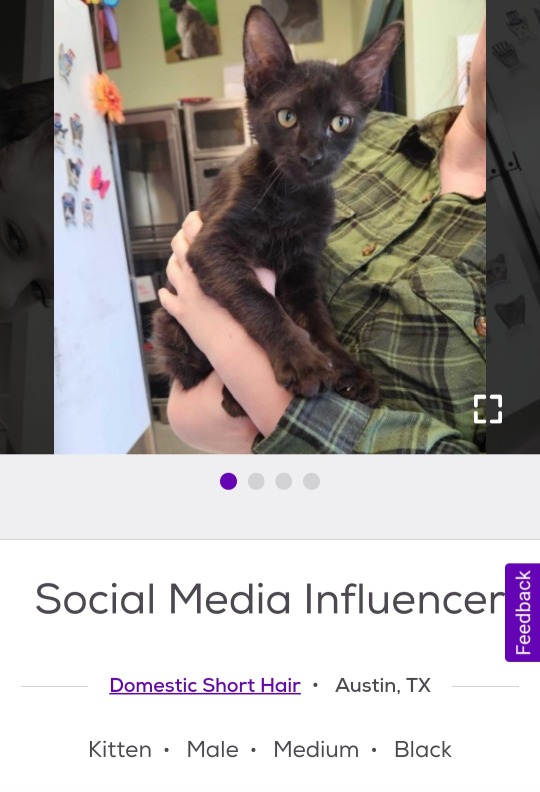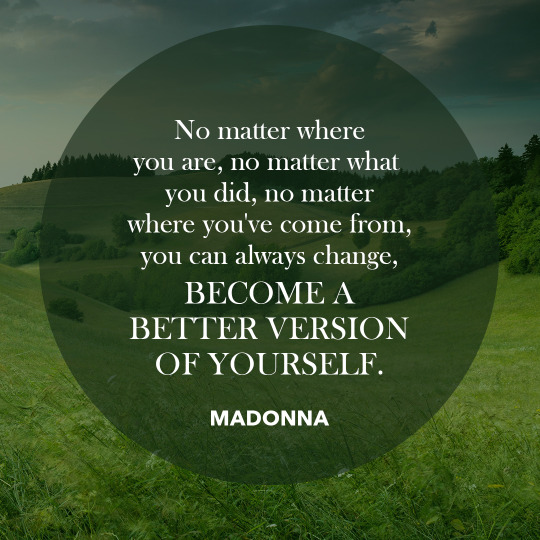#Social Media influencer
Explore tagged Tumblr posts
Text
SOCIAL MEDIA FAME NUMEROLOGY

3 - number of comedy and communication similar to gemini energy (one of the best numbers in my personal opinion except they are often gossiped about quite a bit)
ex: mr beast, charli damelio, tana mongeau, keith lee, emma chamberlain, nara smith, trisha paytas, noah beck, hamzah, zoe laverne
7 - number of technology. this is also the number of food so these people tend to blow up more from videos involving food. they also do well as gamers
ex: rheagan coursey, gina lynn (the chick fil a sauce viral vid girl), madeline argy, markiplier, pewdiepie, vinnie hacker, lexi rivera, alex cooper
8 - the number looks like two 3’s put together so these people can be humorous and strong mouth pieces. this is an underrated influential number. it’s also the number of power and money
ex: jake paul, katie ritchie, jake webber, brooke scholfield, druski, baby ariel, sssniperwolf
2/11 - the number of charisma and influence. they tend to get a lot of hate unfortunately
ex: logan paul, ksi, woo wop, ishowspeed, james charles, larray, lele pons, fanum, avani gregg, fannita
13/31 - underrated number of influence similar to 33 except u must work hard for it with this number. these people tend to create trends
ex: tara yummy, kai cenat, alix earle, jeffree star

#lifepath number#lifepath#life path#numerology#numbers#matrix#influencer#social media influencer#social media#tiktok
156 notes
·
View notes
Text

584 notes
·
View notes
Text

23 notes
·
View notes
Text



I used to think reality TV stars were the bottom of the barrel. But then YouTubers became a thing.
#X#twitter#tweet#tweets#YouTube#YouTuber#YouTubers#social media#influencer#influencers#social media influencers#social media influencer#MrBeast#Jake Paul#cringe#crap#nonsense#jimmy donaldson
40 notes
·
View notes
Text
youtube
#Megamind#Megamind Rules#Megamind Vs. The Doom Syndicate#Megamind 2010#Megamind discussion#social media influencer#It's actually hilarious#Doom Syndicate#Knighty Night#Chum#Minion#Keiko Morita#Roxanne Ritchi#Social commentary#Youtube#itssugarthyme#Sugar Thyme#Mr Donut#Dr Glazer Donut
15 notes
·
View notes
Text

#madonna#inspirational quotes#ebook#ebooks#good ebooks#influencer#i love this#social media influencer#life quote#life quotes#life quote tumblr#life quote motivation#life quote of the day#life qoute
20 notes
·
View notes
Text
Each GTA game is a satire of American culture so GTA 6...
might be a satire of the mid-2010s and influencer culture. Lucia might've been in jail for 5-8 years, long enough to come outta jail and asks, "Who are all these skanks with the phones?" and Jason goes "Oh yeah, you haven't seen many influencers in prison. These people get so popular that they're paid to peddle crap to their fans." "Sounds dumb as shit." "Well, they make millions. The sexy ones can scam 1000s of dollars from their fanboys & get away with it" which naturally leads into some side-missions consisting of Lucia faking being an influencer or maybe she and Jason help an influencer take out the competition.
#influencer culture#social media#social media influencer#instagram#american satire#satire#anti capitalism#latina women#social media scammers#latina#lucia#gta 6#gta vi#grand theft auto#grand theft auto 6#gta 6 lucia#miami#vice city#gta vice city#snapchat#twitch#streamer#i want a parody of gamergirl bathwater#rockstar games
14 notes
·
View notes
Text
What are brands and/or companies that you feel like black/brown creators or influencers should NOT work with? Please explain the reason as well.
This can include:
small or big businesses
US based or international
startups or established
any industry
*Please comment them. Do not reblog answers; otherwise, others may not see them.
#social media influencer#sockal media tips#influencer tips#influencers#brand development#branding#marketing#social media#digital marketing#content creator#content creation
13 notes
·
View notes
Text
"I'm So Glad The Bible Doesn't Care If It Hurts My Feelings."

Gregory Duane Locke is an American non-denominational evangelical Protestant preacher and pastor. He is the founder of Global Vision Bible Church in Mt. Juliet, Tennessee.
Founder of Global Vision Bible Church: Gregory Locke founded Global Vision Bible Church in Mt. Juliet, Tennessee. Under his leadership, the church has grown and attracted a significant following.
Controversial Figure: Locke is known for his outspoken and often controversial statements on social and political issues. His views have garnered both support and criticism from various communities.
Social Media Presence: Locke has a substantial presence on social media, where he shares his sermons, opinions, and updates about his ministry. His online activities have played a significant role in expanding his influence.
Author: Gregory Locke has authored books that reflect his evangelical beliefs and ministry focus. His writings are aimed at encouraging and challenging his readers in their faith.
COVID-19 Stance: During the COVID-19 pandemic, Locke made headlines for his strong stance against mask mandates and other public health measures. He has been a vocal critic of government restrictions related to the pandemic, which has been a polarizing issue within his congregation and beyond.
#Evangelical Preacher#Non-Denominational#Pastor#Global Vision Bible Church#Mt. Juliet#Tennessee#Social Media Influencer#Author#Controversial Figure#Outspoken#Political Views#COVID-19 Critic#Religious Leader#Sermons#Evangelism#American Protestant#Church Founder#Public Speaker#Faith-Based Ministry#Conservative Christian#quoteoftheday#today on tumblr
2 notes
·
View notes
Text
Kizuna no Allele Spoiler-Filled Review
Kizuna no Allele is an idolish music series directed by Kenichiro Komaya. Wit Studio and Signal.MD produce the series. The latter is known for series such as The Ancient Magus’ Bride and Spy x Family, and the former for FLCL Progressive and Atom: The Beginning. In addition, Deko Akao wrote the show’s scripts. Reprinted from Pop Culture Maniacs and Wayback Machine. This was the forty-sixth article…

View On WordPress
#artifical intelligence#BanG Dream!#Cleopatra in Space#crunchyroll#Do It Yourself!!#Gosick#idol anime#Ippon Again!#Kizuna no Allele#Komi Can&039;t Communicate#LGBTQ+#Love Live!#Marvel&039;s Moon Girl and Devil Dinosaur#My Roommate Is a Cat#NFTs#Pop Culture Maniacs#product placement#social media influencer#Spy X Family#Star Trek: Lower Decks#VTubers#Your Lie in April#yuri subtext
11 notes
·
View notes
Text

Forwarding Needs:
Appalachian Banner Academy
Our Mission: To ensure students with Autism, and other developmental and behavioral disorders, build necessary academic, social, and adaptive skills.
Our Vision: Creating safe spaces that will change the way children with Autism, and other developmental and behavioral disorders, live and learn.
SERIOUS NEEDS: The School year has begun, the need is now. Grant-Writer, Volunteers, and Donations.
How you can assist: VOLUNTEER-Marketing-Prayer-Share
If you’d like to be a volunteer or can do social media marketing, your help (& prayers) would be greatly appreciated. Please share this with others.
Donate: Raising funds for this cause.
Appalachian Banner Academy
PO Box 8133 Gray, TN 37615
If you can assist, please contact Mikael Gouge at 423-297-6828. Thank you
#worldwide#please donate#please help#johnson city#tricities#autism#learning disability#volunteers#prayers#prayers needed#support#influencers#global news#social media influencer#autism awareness#global assistance#news media
9 notes
·
View notes
Text

that sunshine ☀️
#influencer#ashley moore#model#instagram influencer#ashleymoore#biracial#poc model#social media influencer
13 notes
·
View notes
Link
By: Ella O’Keeffe
Published: Aug 27, 2021
In March 2016 I sat in a hall filled with over 100 people in Rishikesh, India. A white cotton scarf slung around my shoulders, a string of prayer beads hanging from my neck. We were there to witness a satsang – a panel for spiritual discourse, or ‘gathering together for the truth’ as it formally translates from Sanskrit – hosted by a famous guru and spiritual leader. I had agreed to attend a day prior, baring little knowledge of what a satsang was, or what the guru – who had invited me – was necessarily known for. To suggest I was underprepared for what transpired the following day only touches the sides.
In this hall, the guru sat atop a throne-like chair on stage in front of hundreds of devoted followers who sobbed at the sight of him. A microphone was passed around; an opportunity for attendees to ask questions about enlightenment, purpose, and personal blockages. Some who got the opportunity to enquire fell to their knees, begging to just sit at his feet, kiss his hands, relish his energy. Assertions of the guru being the ‘real deal’ were thrown around fervently, and I, somehow sitting in a deep feeling of safety, couldn’t help but nod in agreement. I attended two more satsangs in the following week.
I travelled to Hyderabad for the day to hear him speak, let my Birkenstocks get stolen as I fell asleep on the floor in peace. I travelled to Lucknow with the group I was working with, visited the late guru Papaji’s ashram and sat in the dark listening to tapes of his past spiritual discourse sessions. We visited his house, sat in his living room, swatted mosquitos away as those who knew him reminisced on his presence. At one point, one of his devotees took me by the hand to the late guru’s bedroom. Silently directing me inside, he shut the door as he left me alone. I fell to my knees and wept, convinced that my physical reaction to what was happening was a spiritual apparition, and not the exhaustion of travelling through India for the past 10 days.
On reflection, I have been surrounded by cult-like dynamics all my life. Raised by parents who are ex-sannyasin’s and ex-Osho devotees – in Byron Bay – the wellness epicentre of Australia, almost indoctrinated into ashrams throughout India. Tightly bound social organisations have been constant, cultic mechanisms imbued in each ideation.
I thought about this trip for months after returning from India, desperate to tell anyone who’d listen about the teachings I’d been privy to. Wanting to go back every time I experienced any measure of pain, desperate for people to understand that the key to life is giving up your ego and embracing enlightenment through complete detachment of self.
It’s easy to imagine cults as mythology-fuelled organisations that tend to manifest as a group who forms an intense and bonding commitment to a charismatic leader or ideology; making use of several debilitating techniques of social control. Secret societies, exclusive and isolated social organisations. Most famously, The Manson Family, the Charles Manson-led cult responsible for the Manson Family murders, setting the stage for satanic panic across America; NXIVM, the sex-trafficking cult most famous for branding its followers; Osho’s Rashneeshpuram, the focus of Netflix’s Wild Wild Country docuseries; Children of God, the ‘free love’ organisation rife with child sexual abuse; The People’s Temple, most famous for the events in Guyana in 1978, where 909 people died in a mass suicide at its remote settlement named “Jonestown.” All painting a shuddering picture of extreme cases of destructive cults.
“When you get into a group where they say ‘your mind is the enemy, give up your ego, the leader is God, Jesus incarnate, don’t be attached to your body.’ It’s just so unhealthy,” says Dr. Steven Hassan, a mental health professional and expert in undue influence tactics used by authoritarian leaders and destructive cults. He is also the author of four books including Combating Cult Mind Control and The Cult of Trump, and an ex-Moonie cult member.
He defines the key characteristics of destructive cults as we know them as the control of people’s behaviour, their information, their thoughts and their emotions to make them dependent and obedient. “The issue is that you don’t have free will, in the sense that there are very strong pressures socially and psychologically, to conform, obey, be in fear. It’s an external locus of control for your life,” Hassan explains.
This kind of behaviour can be traced back in secret societies and cults throughout history. As Norman Mackenzie’s 1960 book Secret Societies describes, “The rituals of many societies may seem anachronistic and bizarre; their beliefs may appear foolish, and their practices eccentric or even barbarous. But no one should underestimate the hold they have had on the minds of those who have felt the need to join them.”
“When we look at a secret group under pressure, we see that its members may choose to die rather than to break the bonds that have united them.”
It’s pretty safe to guess that most people reading this believe themselves to be unsusceptible to cult-like behaviours or indoctrination techniques. How hard could it be, after all? Simply don’t join a cult. But I’d also argue that you’d be hard pressed to find any current or ex-cult member who set out to intentionally join a group. Dr. Hassan credits adherent acquisition to mind control. Not the mystic, Scooby-Doo-style variety, but the kind that is integral to the formation of destructive cults.
He bases this theory off the BITE model – an acronym Hassan pioneered to describe the specific methods cults use to recruit and maintain control over people. ‘BITE’ stands for Behaviour, Information, Thought and Emotional control. He has also developed an Influence Continuum chart, highlighting the scale of influence from individuals, leaders, and groups, ranging from constructive and healthy behaviour to destructive and unhealthy. According to Hassan, both can be cults, however not all are destructive. “Ethical to unethical, healthy, to unhealthy. It’s not a binary, it’s a continuum,” he says.
To think of cults as singularly synonymous with extreme destructive, abusive and controlling dynamics, is to overlook the many ways they have pervaded society for hundreds, if not thousands, of years.
We must cast the net wider, investigating the grey area between the signals of ethical and unethical cult dynamics. In a crowded room, is it possible to identify the types of people most vulnerable to such persuasion? Without giving too much away, the answer is likely no. As desperate as we are to believe the opposite, almost anyone is at risk.
“In urbanised or highly industrialised societies,” Mackenzie writes, “secret associations of the fraternal, quasi-masonic type seem to be playing a stabilising role, helping to fill the void that has been created by the sheer size, complexity, and fragmentation of urban living.”
When reframed in the context of a digital world wound tightly around an obsession for wellness, the idea of destructive cultic mechanisms becomes even less linear. Author, journalist, co-host of the Conspirituality podcast and ex-cult member, Matthew Remski, can attest to this. After spending six of his formative years in two different cultic organisations (and 10 years post-exit recovering from the damage), Remski has been writing about cultic dynamics in yoga and Buddhist spaces since.
The product on offer is self-improvement, and the catalyst to get us there is the ‘enlightened’ guru or leader. When we look at some of the most notable cults in modern history, spirituality is an undeniable denominator in the promise that is offered. According to Remski, the intention is never as it would appear. “The first thing to be very clear about is that the cult doesn’t exist to provide content, the cult exists to manipulate members,” he says. “So people get quite confused about whether cultic organisations necessarily have a religious angle to them, or whether charismatic leaders have to take on the effect of religious figures or priests.”
While spirituality and cults can often be bound together by premise, the destruction often lies in the deception helmed by a malignant narcissist leader, not necessarily by the belief system itself.
“When you really get the basic axiom that the content of the cult is part of its deceptive technique, and therefore, it doesn’t really matter what the nuts and bolts are – in fact, the nuts and bolts of what they believe is part of the deception – and if you spend too much time talking about or analysing what the actual beliefs are, you’re kind of endorsing the organisation as being a religious organisation, or a political organisation.” Remski says.
When observing cultic dynamics that are rooted in self-improvement from a wellness practice lens (think yoga and meditation), the line of authoritarian control becomes even less demarcated.
“I think that it’s the spiritual cults that are most famous because they seem to be the most unlikely,” says Remski. “And at the same time, the difference between what is promised and what actually happens is so egregious, that it presents a particularly pernicious level of betrayal.” Therein lies the danger of the carrot offered to the follower. “You will understand reality on one hand, or you will become enlightened. But then the shadow of that promise is a deep threat. Which is, ‘If you don’t go along with this ideology, and if you don’t submit yourself to this kind of control, you will be imperilled, perhaps forever or for lifetimes’.”
The last decade’s rise and rise of wellness culture has come served not only with gut cleansing tonics and calls for mindfulness, but also heaped doses of scepticism, with some likening it to one of the largest covert ideations of cultic mechanisms in the modern world.
The carrot on offer, for example, is the same one blended in the ginger, orange and turmeric juice Gwyneth Paltrow wants you to drink each morning to ‘kick start’ your metabolism – a promise of the aspirational self-bottled into product form, with a label declaring ‘You need this for people to see you as whole. As reformed. As clean.’
What we are coming to witness is the normalisation of cultic dynamics in a more efficient way, proliferated by access to a digital world. One example is the influencer, who has been presented with a unique opportunity to channel all of the charisma and control tactics of the guru with very little accountability. The influencer who is constantly telling you to detox your body (a function that our livers quite often have under control if you’re not totally abusing it) is the same one directly profiting off of the activated charcoal and dry body brush they have a discount code linked to in their bio. “There’s a direct lineage of charismatic personalities and marketing the aspirational self, in ways that are more and more socially acceptable. That’s basically the wellness industry. That’s certainly also more lucrative, right?” Remski says.
Right, of course. We’re not being forced to purchase something that will supposedly increase our value as human beings, but to not understand the scope of the way these tactics can infiltrate our behaviour and, ultimately, our sense of worth as individuals, is to ignore the evidence that has been building a case against the deceptiveness of social media for years.
It was here in these spaces that my own relationship to wellness became directly linked to forms of self-harm. On cleanses since the age of 15, going vegan, cutting out oil, cutting out fats, going raw, restricting my fruit intake, restricting my calorie intake, restricting my freedom, leading me further down my relentless pursuit of cleanliness that always seemed to be at the end of the next celery juice fast. This time, I should add, was when I was my weakest and most miserable self. It was also the time that I sat for hours in satsang, on the precipice of worshipping gurus.
For many, an affliction to the wellness industry is a posthumous reaction to experiencing more destructive cultic behaviour. A convergence of capitalist wellness sociology is born on the tails of intense cultic dynamics, offering a sense of normalcy and reduced harm without so much changing the balance of power.
Today, the digital experience has not only proliferated the concept of wellness as a cultic mechanism, but much darker forces, too. “I think that especially in the digital age, especially in the age of Qanon… in the age of online network marketing, in the age of multi-level marketing, we have to start looking at cultic dynamics as being features of tightly bound social organisations that benefit very few,” Remski says. The vision of the cult as we traditionally know it has transcended both location and leader, and manifests in ways that are undeniably more nuanced than our traditional understanding.
Dr. Hassan’s BITE model can be applied in exactly the same way through the lens of groups that exist on the internet. Characteristics such as behavioural control can manifest not only through people being told exactly what to do, but also through actions. In the case of the Qanon phenomenon – a set of internet-born conspiracy theories that allege that the world is run by a cabal of Satan-worshiping pedophiles, among other disproven rhetoric – these actions, for example, include staying up all night waiting for Q drops (an inadvertent form of sleep deprivation). Or, being shown algorithmic content wherein artificial intelligence has figured out the users’ emotional hotspots and targets them with content that will fuel the conspiracy. “The AI for the social media is doing the work of the charismatic leader, who used to have to escalate his or her own content in order to radicalise. They don’t have to do that anymore,” Remski says.
In tandem to this, Dr. Hassan notes that the pandemic has been another amplifier, exacerbating feelings of vulnerability. “Everyone has anxiety,” Dr. Hassan says, “everyone was socially isolated. So, it was just that much easier to spread all kinds of influence projects to get people involved.” As a result, the acceleration of Qanon has made it one of the most well-known digital cult dynamics of the modern era. Its most notable method of magnification is through recruitment tactics that preyed on the uncertainty of the past year.
This highlights another vital part of the conversation: In order to unpack the role cultic dynamics play in our society, it’s important to acknowledge the types of people vulnerable to becoming victims, as well as the type of leader. Someone who, as Dr. Hassan points out, could be anyone at the ‘right place and right time’.
“There’s always deception used,” Dr. Hassan explains. “In my case, my girlfriend dumped me. I was a college student … Three women pretending to be students approached me out in the cafeteria and it led to me going to a dinner and a lecture, and then being invited to go away for a weekend. And then I got into a cult for two and a half years.”
As far as the anticipation of cult indoctrination, it’s seldom likely that the idea sits high on many peoples’ list of worries. Rather, it lingers like an afterthought, once the bitter taste of another’s story has cleared from their throats; a passed judgement about how someone could end up in such an unthinkable scenario. No-one considers themselves easy bait, and our tendency to generalise incorrectly is an unfortunate constant in the overarching conversation. To imagine that the only people vulnerable to cultic dynamics are those who are stupid, weak, uneducated, mentally or emotionally distressed (and so on), is to close oneself off to the potential warning signs of recruitment.
“We’re human beings. We like to learn and grow, we like to have friends and do meaningful things. And in the right sequence, an authoritarian cult recruiter can influence many people that get involved, Dr. Hassan warns. “And then once you’re involved,” it becomes increasingly difficult to exit.”
In most cases, it comes down to both community and bonds. When those bonds are informed by trauma, and the leader of the group can oscillate between terror and love bombing, disorganised attachment is likely to form. Remski attributes this theory to the work of Alexandra Stein, a writer and educator specialising in the social psychology of ideological extremism and dangerous social relationships. “Forget about the ideology, forget about what the person is promising you, forget about the robes and the funny hats and the weird rituals,” he says. “Forget about all of that. At the heart of the basic relationships, if there is a confusion between an authority figure who terrifies and then seems to offer a false safe haven or protection, that’s the magic. That’s what’s going to bond people together in this extremely destructive dynamic.”
Norman Mackenzie articulated the dynamic in Secret Societies, attributing an involvement in cults to the underpinnings of the modern identity crisis. One that, when the net truly is cast wider, can be recognised as a murmur within us all. A murmur that ultimately becomes louder with our desire to find community, form connections, do work that feels meaningful, live out our purpose, and find ways to combat the innate loneliness that is intrinsic to our existence in a contemporary world.
“It is important to realise that these groups may reflect as many different aspects of human thought and action as are found in society at large – and that each, in its own way, represents an attempt to solve the common human problem of identity.”
#Steven Hassan#cults#cult dynamics#authoritarianism#cult of personality#social media influencer#mindfulness#wellness culture#wellness industry#predatory#predators#vulnerability#external locus#religion is a mental illness
14 notes
·
View notes
Text

28 notes
·
View notes
Text
Grace Charis is a very well-known and famous personality of the present times. She is a model, golfer, Instagram personality, OnlyFans star, social media influencer, content creator and entrepreneur.
#Grace Charis is a very well-known and famous personality of the present times. She is a model#golfer#Instagram personality#OnlyFans star#social media influencer#content creator and entrepreneur.
7 notes
·
View notes